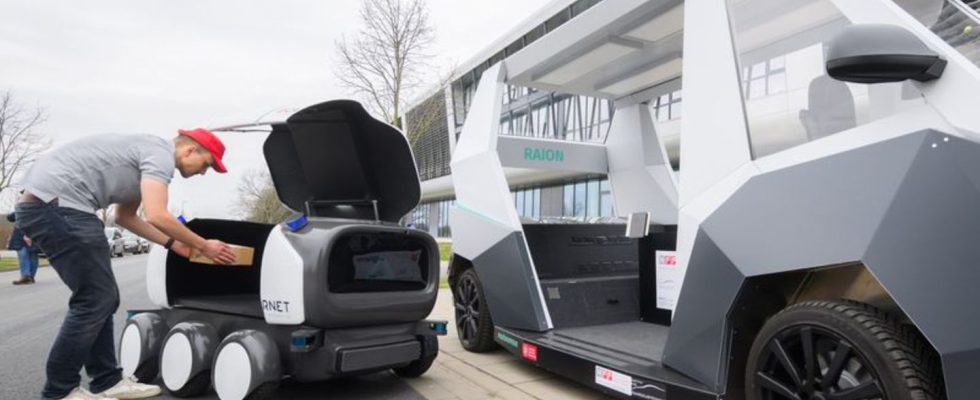Science
Researchers introduce robots for parcel delivery
Delivery robots were presented at the TU Braunschweig: the larger vehicle is a mobile logistics center and the smaller one is the delivery vehicle. photo
© Julian Stratenschulte/dpa
Parcels delivered by robots? This could happen in five to ten years – this is the conclusion reached by a research project that was presented in Braunschweig.
Robot instead of parcel delivery: A team of researchers has… Braunschweig presented two autonomous vehicles that are supposed to independently deliver parcels when networked with each other.
A larger vehicle is a kind of mobile temporary storage on wheels; the smaller vehicle receives packages from it and drives them to the recipient. The delivery robot cannot ring the doorbell; the recipient is informed via SMS.
The demonstration took place in Braunschweig, the technical university there is involved in the project. The aim is to fully automate the “last mile” – i.e. the last route to the recipient – and thereby significantly reduce costs, said one of the responsible scientists at the university, Torben Hegerhorst. The system will be used primarily in cities where many people receive parcels.
Not yet economically worthwhile
The robots had previously been tested near Barcelona and in Hungary. However, it will still take some time until it is actually operational. The implementation could take place “in the medium future,” said Hegerhorst, and spoke of five to ten years as a possible time window until use in regular operations.
The number of parcels has been growing for a long time because people are ordering more and more online. The logistics industry is desperately looking for workers. The companies have already tested delivery robots several times, but have not pursued their use further. Marten Bosselmann from the Biek industry association sees the topic as fundamentally positive, but also says: “Practical use cases that gradually reach large quantities and are economically worthwhile are rather unlikely in the foreseeable future.”

